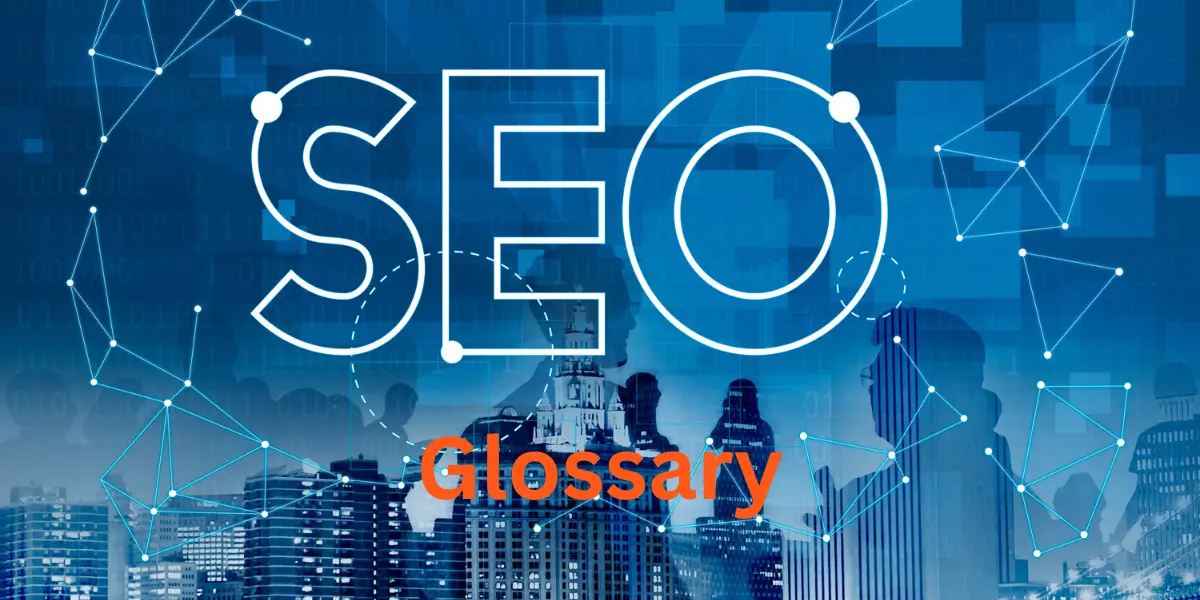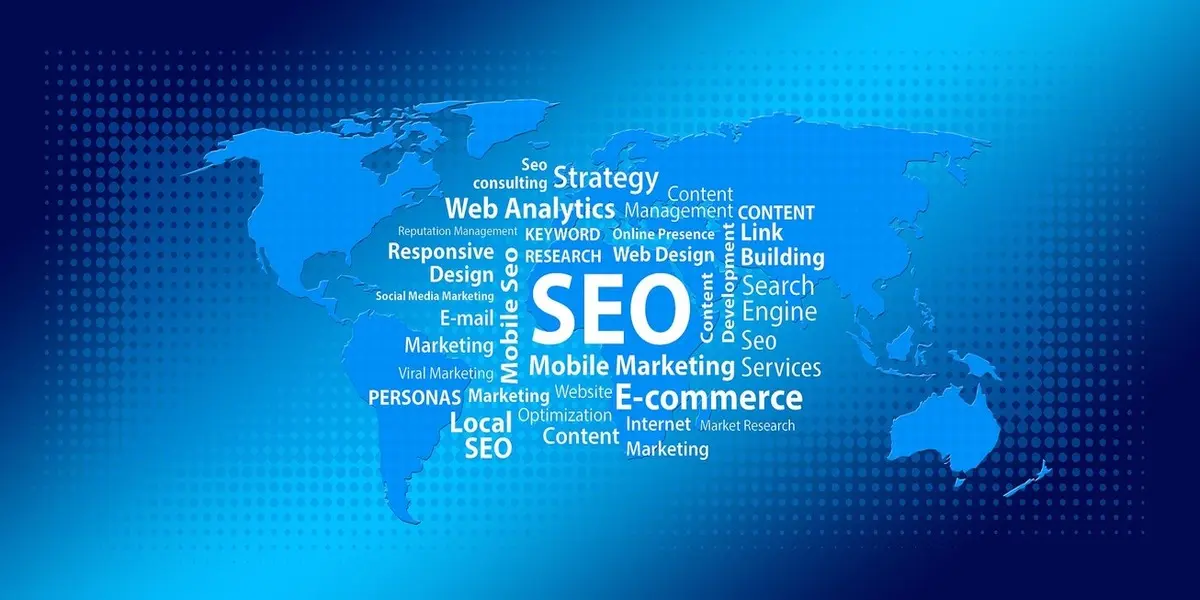Search Engine Optimization (SEO) has its lexicon filled with acronyms, jargon, and technical terms.
Whether you are an SEO novice or a seasoned expert, familiarizing yourself with this terminology can help you understand complex strategies, make informed decisions, and communicate effectively with others in the field.
Table of Contents
The Ultimate SEO Terms You Must Know
Below is an extensive glossary of ultimate SEO terms, complete with definitions and contextual explanations.
Let’s start!
Algorithm
An algorithm in SEO refers to the rules and calculations that search engines use to rank web pages in their search results.
Algorithms are complex and constantly changing. Google’s primary algorithms, such as Panda and Penguin, have profoundly affected search rankings and have pushed SEO experts to prioritize quality content and ethical practices.
Alt Text
Alt text, or “alternative text,” is a description added to an image’s HTML code to describe its appearance and function for search engines and users with visual impairments. Properly optimized alt text can improve a website’s SEO.
Anchor Text
Anchor text is the visible, clickable text in a hyperlink. In SEO, using relevant anchor text can help search engines understand what the linked page is about, potentially improving its ranking for targeted keywords.
Backlink

A backlink is an incoming link to a webpage from another site. High-quality, relevant backlinks are a significant ranking factor in SEO algorithms because they suggest that the linked-to site is authoritative and valuable.
Black Hat SEO
Black Hat SEO refers to unethical or deceptive SEO practices aimed at tricking search engines into giving a webpage a higher ranking. These tactics are usually against search engine guidelines and can result in penalties or bans.
Bounce Rate
Bounce rate is the percentage of visitors who navigate away from a site after viewing only one page. A high bounce rate can negatively impact SEO, as it may signal to search engines that the site’s content is irrelevant or valuable to users.
Canonical Tag
A canonical tag is an HTML element that helps prevent duplicate content issues by specifying a webpage’s “canonical” or “preferred” version. This allows search engines to understand which version to index and rank.
Click-Through Rate (CTR)
The click-through rate is the ratio of users who click on a specific link to the total number of users who view the page, email, or advertisement. In the context of SEO, a higher CTR for a page may lead to improved rankings.
Content Management System (CMS)
A Content Management System (CMS) allows users to create, manage, and optimize digital content. Popular CMS platforms like WordPress are often equipped with SEO-friendly features.
Other popular Content Management Systems are:
- Joomla
- Drupal
- Wix
- Magento
- Squarespace
Domain Authority (DA)
Domain Authority is a metric developed by Moz that predicts how well a website will rank in search engine results. It ranges from 1 to 100, with higher scores indicating greater authority and ranking potential.
E-A-T
E-A-T stands for Expertise, Authoritativeness, and Trustworthiness. Google uses this framework to evaluate the quality of web pages, particularly in “Your Money or Your Life” (YMYL) categories that can significantly impact a user’s well-being or financial stability.
Featured Snippet
A featured snippet is a special box displayed above the organic search results that directly answers a user’s query. Earning a featured snippet can significantly increase visibility and click-through rates.
Google My Business (GMB)
Google My Business is a free tool that allows businesses to manage their online presence across Google properties, including Search and Maps. Optimizing GMB listings is a vital part of local SEO.
HTML
HTML, or HyperText Markup Language, is used to create web pages. Understanding HTML is essential for SEO as it helps optimize elements like headings, paragraphs, links, and other components of a webpage.
Internal Link
An internal link is a hyperlink that directs the user to a different page on the same website. Internal linking is a crucial aspect of on-page SEO, helping search engines understand a website’s structure and content.
Keyword
A keyword is a term or phrase users type into search engines to find information. Targeting the right keywords is fundamental to SEO, as it helps drive organic traffic from relevant search queries.
Landing Page
In digital marketing and SEO, a landing page is a standalone web page created for a campaign or advertising initiative. These pages are designed to convert visitors into leads or customers.
Meta Description
The meta description summarizes a web page’s content that appears under the URL in search engine results. While not a direct ranking factor, a compelling meta description can improve click-through rates.
NoFollow
NoFollow is an attribute added to a hyperlink to tell search engines not to pass PageRank to the linked page. This is often used when the credibility or quality of the linked site is uncertain.
Organic Search
Organic search refers to the unpaid search results that appear in search engines instead of paid advertisements. SEO aims to improve a website’s visibility in organic search results.
PageRank
PageRank is an algorithm Google uses to measure the importance of web pages, primarily based on the number and quality of links pointing to the page.
Query
In SEO, a query is a term or phrase a user types into a search engine. Understanding the types of queries that lead users to a website can inform keyword and content strategies.
Robots.txt
The robots.txt file is a text file used to instruct web robots (like search engine crawlers) on indexing pages on a website. It can specify which pages should not be crawled or indexed.
Schema Markup
Schema markup is a form of structured data added to a webpage to help search engines understand its content. This can improve how a site appears in search results, including rich snippets and knowledge graphs.
SERP
SERP stands for Search Engine Results Page, the page a search engine displays in response to a user’s query. SERPs typically include organic search results, paid advertisements, and features like local packs and featured snippets.
Sitemap
A sitemap is a file that lists a website’s URLs, providing search engines with information about the site’s structure and content. XML sitemaps are commonly used for this purpose.
URL
The URL, or Uniform Resource Locator, is the web address where a webpage can be accessed. Optimizing URLs with relevant keywords and a clear structure can improve SEO.
White Hat SEO
White Hat SEO refers to ethical SEO practices that align with search engine guidelines. These tactics focus on providing value to users and improving search rankings through legitimate means.
Off-page SEO
Off-page SEO is about enhancing your website’s authority and relevance in the eyes of search engines through strategies applied outside your website.
E-Commerce SEO

E-Commerce SEO encompasses optimizations and strategies to improve an online store’s visibility in search engines.
XML
XML, or Extensible Markup Language, encodes data in a format that humans and machines can easily read. In SEO, XML is often used for sitemaps to help search engines index a website’s content.
Wrapping Up
This glossary is not exhaustive but covers many essential terms you’ll encounter in the SEO world. Understanding this terminology will empower you to communicate more effectively with colleagues, read and interpret SEO reports, and implement advanced strategies to impact your website’s search engine performance significantly.
I hope these SEO Glossary have inspired you to help understand complex strategies, make informed decisions, and communicate effectively with others in the field of SEO.
You may also want to see these guides on SEO For Mobile and Voice Search, Technical SEO, On-Page SEO, and E-Commerce SEO.
That is all about The Ultimate SEO Terms. Let’s meet in the comments to get your opinions on this.
Let us discuss the Ultimate SEO Terms.
If you liked this article, please follow us on the following Social Network:
- Find Us On Facebook
- Connect with WordPress Experts and other WordPress Users in our free Facebook Community.
- Join Us On Twitter
- Follow Us On the Telegram Group
- Find Us On the WhatsApp Channel
- You can also reach Us by using the Contact Form.
- Also, find Our Blog Page for more tutorials.
- Follow Us On Google News for more updates.




